News
-
28/01/2022Iberdrola connects first generation unit at Tâmega giga battery, one of Europe’s largest pumped storage plants Over the past few days, in collaboration with the Portuguese administration, Iberdrola has synchronised the first 220-MW turbine at the Gouvães hydroelectric power plant, delivering clean power to the grid for the first time. The Tâmega complex is one of Europe’s largest energy storage facilities with an investment of more than €1.5 billion. It comprises three reservoirs (Gouvães, Daivões and Alto Tâmega) and three hydroelectric power plants with 1,158 megawatts (MW) capacity on the Tâmega river, a tributary of the Douro. After eight years of construction work, the Gouvães and Daivões plants have now been completed and all of the generating units are currently undergoing commissioning tests. Tâmega will be able to produce 1,766 GWh per year, enough to meet the energy needs of neighbouring municipalities and the cities of Braga and Guimarães (440,000 households). When the Gouvães and Daivões plants are fully operational in the middle of this year, the large Tâmega giga battery will have enough storage capacity to supply two million Portuguese households for an entire day, and will contribute to the decarbonisation and energy independence objectives set by the Portuguese government. In 2024, with the commissioning of Alto Tâmega, the facility will be fully completed. In addition, this infrastructure will displace 1.2 million tonnes of CO2 emissions per year and diversify electricity generation sources while reducing fossil fuel dependency. Creating jobs and economic development in the region The development of this giga battery is boosting economic activity and employment in the region. Throughout the construction phase, 3,500 direct jobs and 10,000 indirect jobs have been created, 20 % of which from neighbouring municipalities. The project is supplied by over 100 companies, 75 of which are Portuguese. This major clean energy project further highlights Iberdrola's commitment to a sustainable energy model, which began two decades ago. The Tâmega complex has been facilitated by the stable regulatory and macroeconomic environment created by the Portuguese government. Despite the pandemic and economic challenges, Iberdrola's engineering and construction teams, supported by suppliers, contractors and the government, have continued to work tirelessly to incorporate new renewable capacity into the grid. Pumped technology, the most efficient storage The Tâmega giga battery will add 880 MW of pumped storage capacity to the Portuguese electricity system, a 30% increase in the storage capacity available in the country today. Reversible turbines and pumped storage plants strengthen the electricity system. Energy is stored by pumping water from a lower reservoir to a higher one at times of low demand on the electricity grid. When there is high demand for electricity, the complex can release this stored water and produce high volumes electricity quickly. All this takes place with no polluting emissions to the atmosphere. As a back-up to other renewable energy sources, such as wind or solar photovoltaic, this hydroelectric technology provides stability to networks and has a key role to play in the energy transition that will lead to the decarbonisation of the economy. Iberdrola is a global leader in energy storage with 4,500 MW pumped storage installed, excluding this facility. The company expects to reach 90 million kilowatt hours (kWh) of storage capacity by the end of 2022, an increase of almost 30% from 2018. This additional 20 million kWh is equivalent to 400,000 electric car batteries or 1.4 million batteries for residential use. READ MORE
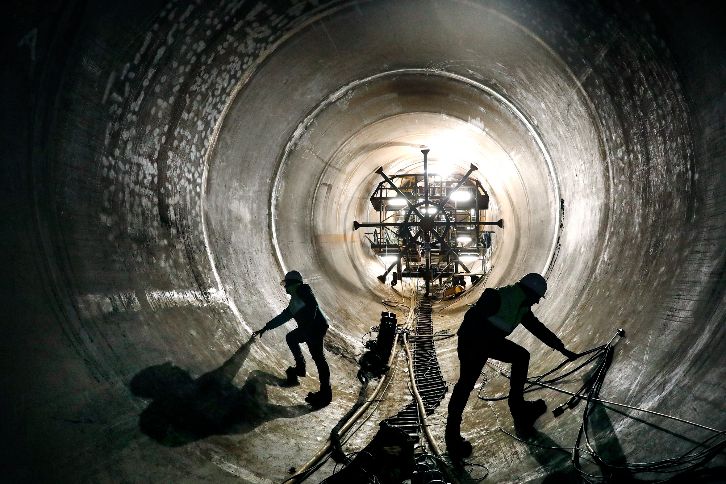
-
27/01/2022Iberdrola and Volvo Car España commit to sustainable mobility Iberdrola and Volvo Car España have joined forces to promote electric mobility in Spain and encourage the transition to more sustainable transport. To this end, they have signed an agreement whereby both companies will work together to deploy a network of public charging points at the carmaker's dealerships. This alliance, embodied in the launch of the first charging station in Lérida, arises from the mutual interest of Volvo Car España and Iberdrola in promoting the fight against climate change and improving air quality in cities, as well as the desire to contribute to achieving sustainability objectives and to be a benchmark in the deployment of electromobility. For Raquel Blanco, Iberdrola's Global Director of Smart Mobility, "the agreement confirms the company's efforts to collaborate with all the agents involved to promote sustainable mobility and thus respond to the public's interest in moving around in an environmentally friendly and competitive way, with convenient and simple solutions for public recharging". José María Galofré, CEO/CEO of Volvo Car España, says: "The purpose of our company from the very beginning has been to take care of people while they use our cars. For that reason, sustainability and caring for the planet we live on is as important to us as safety. This agreement further reinforces our commitment to electrification and will allow our customers to recharge their electric models in a much more convenient and simple way. Users of the points installed at Volvo dealerships will recharge their electric car batteries with 100% green energy, from renewable generation sources, with guarantee of origin certificate (GoOs). The charging points will be located on the Iberdrola Public Charging App, the only one in Spain that includes verified information on all electric vehicle chargers, both those of Iberdrola and those of other operators, from which you can geolocate the charger, check its operation in real time and reserve and pay from your mobile phone. In addition, the agreement provides that Iberdrola will offer Volvo's customers the possibility of charging their vehicles at home with green energy, as well as various smart and innovative energy solutions for the residential sector. Electric mobility and green recovery The electricity company is rolling out a sustainable mobility plan, with an investment of 150 million euros, with which it will intensify the deployment of charging points for electric vehicles in the coming years. The initiative envisages the installation of around 150,000 charging points, both in homes and businesses, as well as on urban roads, in cities and on the main motorways in the coming years. The commitment to the deployment of high-efficiency stations will take the form of ultra-fast (350 kW), super-fast (150 kW) and fast (50 kW) stations. Iberdrola is aware of the need to promote electromobility in Spain through coordinated and effective action with the main agents involved. In this regard, the company has already completed more than 50 infrastructure deployment agreements with administrations, institutions, companies, service stations, dealers and electric vehicle manufacturers. The company was the first Spanish company to sign up to The Climate Group's EV100 initiative, with the aim of accelerating the transition to electric vehicles, committing to electrify its entire fleet of vehicles and facilitate charging for staff in its businesses in Spain and the UK by 2030. READ MORE
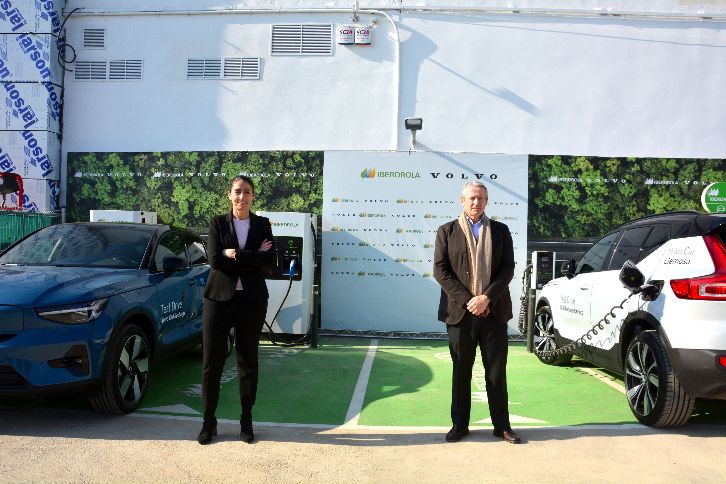
-
26/01/2022Iberdrola included in the Bloomberg Gender Equality Index for the fifth year in a row Iberdrola remains a benchmark in terms of equal opportunities, as evidenced by its inclusion, for the fifth consecutive year, in the Bloomberg Gender Equality Index (GEI), which today released the results of its 2021 edition. The group has improved its score from the previous year, thanks to its transparent reporting of the indicators required by the index and its increase in the inclusive culture and female leadership scores. Inclusive culture is precisely the most relevant of the five pillars that Bloomberg analyses to compose this index, along with women's leadership and talent management, equal pay, the existence of sexual harassment policies and the role of women in their brand. To compile this index, which includes 418 companies from around 45 countries, Bloomberg analyses the data of more than 11,500 companies from all over the world, with capitalisations of more than 1 billion dollars. With its methodology, it seeks to provide transparent and comparable information to investors interested in environmental, social and governance (ESG) criteria. In the case of Iberdrola, the GEI has given a very positive assessment of the dissemination of information related to diversity and equal opportunities. As stated in its Diversity and Inclusion Report, these two aspects are considered a strategic priority for the company's sustainable growth. In the area of gender equality (Sustainable Development Goal 5 of the 2030 Agenda ), Iberdrola has made ambitious commitments. Gender diversity in senior management In recent years, Iberdrola has consolidated equal pay for men and women and supports gender diversity not only in its Board of Directors, but also in its management positions. Increasing their presence is an objective that forms part of the company's strategic plan. Currently, female representation represents 24% of the total, above the 20% average in the STEM labour ecosystem. Since 2013, Iberdrola has become one of the companies with the highest percentage of female directors among Ibex companies: it has 50% of external female directors on its Board of Directors and has set itself the goal of increasing the presence of women in management positions to reach 30% by 2025. READ MORE

-
25/01/2022Iberdrola commissions its largest power line of almost 730 kilometres in Brazil Iberdrola has commissioned its largest power line in the world with almost 730 kilometres. The company, through its subsidiary Neoenergía , has put into operation the Jalapão transmission line between the north and northeast of Brazil, running through four states in the country: Tocantins, Maranhão, Piauí and Bahía. The function of this line is to extend the transmission grid to improve energy exchange between the North and Northeast regions, facilitating the flow of energy generated at the Belo Monte (AP) hydroelectric power plant, an asset in which Neoenergia has a stake and, with an installed capacity of 11,233.1 MW, is the largest power plant in Brazil. The Jalapão project has used 13,100 kilometres of conductor cables, equivalent to the distance between São Paulo and Moscow. Thanks to its construction, Neoenergía has employed more than 2,000 people at the peak of the works. It has also led to a number of economic and socio-environmental benefits for the local population. Among other actions, Neoenergia promoted environmental solutions starting with stalled works around the Transmission Line, of structures abandoned in situ for more than five years, prior to the acquisition of the project. The initiative enabled the environmental recovery of the section, allowing the area to return to its previous natural conditions. Approximately 4,000 concrete foundations from the old transmission line have been recycled and crushed into small pieces, enough to cement approximately 24,000 square metres of roads. This material was used to improve roads in the municipalities involved in the project. In addition, some of the other materials, such as steel, were sold and the proceeds were used to buy more than 900 food baskets for people in vulnerable situations. The project was procured in Lot 4 of Auction 02/2017, conducted by the National Electricity Agency (ANEEL) in December 2017 and has been commissioned 15 months ahead of the regulatory body's contractual forecast. Networks, the key system for the transition, to which it will devote half of its investments Iberdrola has been leading the energy transition for two decades , acting as a driving force in the transformation of the industrial fabric and the green recovery of the economy and employment. The company has launched a historic investment plan of 150 billion euros over the next decade - 75 billion euros by 2025 - to triple renewable capacity and double network assets, taking advantage of the opportunities of the energy revolution facing the world's leading economies. Almost half of this volume of investment will go to the electricity networks business, with the aim of continuing its international deployment, consolidating a solid distribution network and making it more flexible, based on an ambitious digitalisation process as a key element to respond to the future needs of the electricity system. Iberdrola operates one of the largest electricity distribution systems in the world; more than 1.2 million kilometres of transmission and distribution lines and more than 4,400 substations, which distribute electricity to more than 34 million people around the world, in countries such as Spain, the United Kingdom, the United States and Brazil. By 2025, regulated assets will amount to 47 billion and will mainly be located in A-rated countries. By 2030, the company expects to double the regulated value of its network assets to 60 billion euros. READ MORE
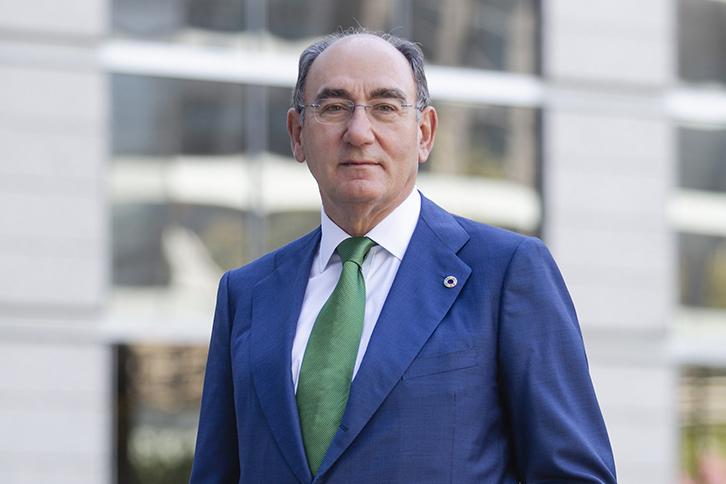
-
21/01/2022Ignacio Galán meets with European Commission President Ursula von der Leyen at the Davos Forum The Chairman of Iberdrola, Ignacio Galán, has met with the President of the European Commission, Ursula von der Leyen, within the framework of the high-level meetings that the World Economic Forum is organising these days prior to the Davos summit, scheduled for the spring . During the meeting, the President of the Commission stressed some of the messages she has been defending lately, such as the fact that natural gas is a determining factor in the rise in electricity prices throughout Europe. Faced with this situation, she argues that the only possible response is to accelerate the energy transition and the expansion of renewable energies . The European Commission advocates specific lines of work, including making it easier for member states to adopt tax reductions to mitigate the socio-economic effects of the dynamics of energy markets, as well as promoting the competitiveness of European companies through European funds that promote their adaptation to the green economy . It also stresses the importance of guaranteeing legal certainty for companies in their activities. READ MORE
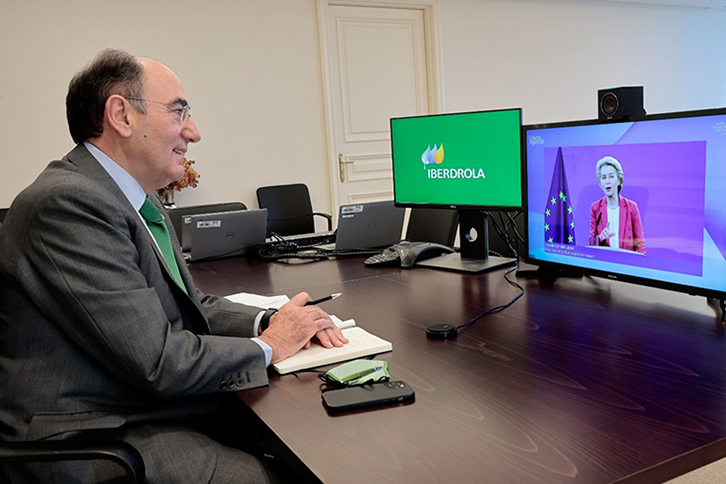
-
20/01/2022Iberdrola consolidates its position as the biggest driver of renewables in Spain with the installation of 2,000 new MW during the pandemic Iberdrola has consolidated its position as the main driver of renewable energy development in Spain with the commissioning of 2,000 MW of new wind and solar capacity during the pandemic, which has meant a growth of more than 35% of our installed renewable capacity in Spain. 76% of the new developments correspond to photovoltaic installations. Of these, the Núñez de Balboa plant in Extremadura stands out, which, with 500 MWdc, is capable of supplying clean energy to 250,000 people. In this region, the company has also commissioned plants in Ceclavin (328 MWdc), Arenales (150 MWdc) and the Campo Arañuelo complex (143 dc), the latter a pioneer in incorporating an energy storage system through a 3 MW battery. It is also worth mentioning the 50 MWdc Andévalo photovoltaic plant in Andalusia, built as part of the wind power complex of the same name - the largest in continental Europe - and which has become the first facility to obtain the 'UNEF Certificate of Excellence for Sustainability and Biodiversity Conservation'. The acceleration of its renewable strategy has enabled Iberdrola to start up its first three photovoltaic plants in Castilla-La Mancha in 2021: Barcience (50 MWdc), Olmedilla (50 MW) and Romeral (MW). Also in Aragon, the company has installed in Teruel the first photovoltaic plant to be built in this region, with 50 MW. Iberdrola has also strengthened its leadership as a wind power developer in Spain, with nearly 500 MW installed since 2019. Castilla y León was the autonomous community with the most megawatts installed by the company, with the commissioning of the Encillas (23 MW), BaCa (69 MW), Fuenteblanca (10 MW) and the Herrera II complex (63 MW), equipped with the most powerful wind turbines in Spain to date, with more power than the first ones installed two decades ago. In Asturias, the company has tripled its installed wind capacity, with four new wind farms totalling 129 MW. In Navarra, Iberdrola has commissioned the 111 MW Cavar wind farm complex, the largest facility of its kind to come on stream in the country since 2012. The company has also installed the Puylobo (49 MW) and Pradillo (23 MW) wind farms in Aragon. 1,500 MW more renewables in Spain Iberdrola is currently building 1,000 MW of renewable energy in Spain. These include the Pizarro photovoltaic plant which, with its 590 MWp of installed capacity, will be the largest in Europe, will prevent the emission of 150,000 tonnes of CO2 and will supply energy to 334,4000 homes. The Cedillo (100 MW) and Almaraz I and II (80 MW) photovoltaic facilities are also under construction in this community. In Andalusia, the company is building the Martín de la Jara (36 MW) and El Puntal (15 MW) wind farms. In Castilla-La Mancha, it is installing a 100 MW photovoltaic plant in Puertollano, the largest green hydrogen plant for industrial use in Europe . In Castilla y León, work continues on the Revilla-Vallejera photovoltaic plant (50 MW) and in the Basque Country it will install the first battery in a wind power project, at the Elgea-Urkilla wind farm. In addition, Iberdrola already has environmental authorisations for the construction of another 500 MW in various wind and photovoltaic projects in Castilla y León, Cantabria, Castilla la Mancha, Andalusia, the Canary Islands and Murcia. Ambitious renewables investment plan The strong expansion of Iberdrola's renewable generation system in Spain responds to the ambitious investment plan that the company has accelerated in order to contribute to the reactivation of economic activity and employment. "Our business model, which has anticipated the energy transition by 20 years, positions us as a key player in the transformation of the industrial fabric, using our experience, social commitment and financial capacity to promote a long-term sustainable economic growth model capable of meeting the current challenges facing society", explained Julio Castro, CEO of Iberdrola Renovables Energía. Since 2019 - and despite the crisis generated by the health emergency - the company has allocated more than 2.3 billion euros to renewable development in Spain. Likewise, the projects promoted by Iberdrola have boosted the local supply chain. "Iberdrola has always been committed to local suppliers in the development of all its projects in order to contribute to the development of the territories, strengthening their economy and generating local employment. An example of our commitment is the acquisition of our transformers from the company FARAMAX, in Extremadura, or from ABB, in Cordoba, or the awarding of the structures of our photovoltaic plants to the company Cameto in Ciudad Real and of inverters to the Basque company Ingeteam", said Castro. Key agent for economic recovery Iberdrola has been leading the energy transition for two decades, acting as a key driving force in the transformation of the industrial fabric and the green recovery of the economy and employment. To this end, the company has launched a historic investment plan of 150 billion euros over the next decade -75 billion euros by 2025-, with which to triple renewable capacity and double network assets and take advantage of the opportunities of the energy revolution facing the world's leading economies. In Spain, investments to 2025 amount to 14.3 billion euros, mainly for the deployment of an ambitious renewables and smart grids plan. In Spain, the company is the leader in the renewable sector with an installed capacity of more than 17,400 MW, which its investment plan to 2025 will increase to 25,000 MW. After investments of 120 billion euros in the last twenty years, Iberdrola is a leader in renewable energy with more than 35,000 MW installed worldwide; a volume that makes its generation system one of the cleanest in the energy sector. READ MORE
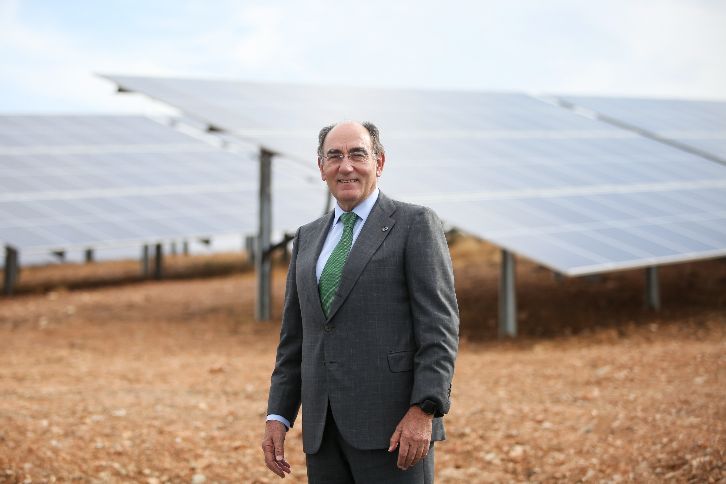
-
19/01/2022Iberdrola chosen once again as one of the most sustainable companies according to the new edition of the Global 100 Iberdrola has been selected as one of the most sustainable utilities worldwide, according to the Global 100 Most Sustainable Corporations in the World index, prepared annually by the publication Corporate Knights. The company headed by Ignacio Galán is also one of the top 25 companies in the world and the first Spanish company in this ranking. Corporate Knights is a media and investment research company trusted for its unrivalled track record in providing ESG (environmental, social and governance) information, objectives and analysis. It enables significant engagement with many of the world's most influential corporate, political and investment decision makers, becoming a brand synonymous with sustainability. Ranking in the Global 100 is a recognition of sustainability performance and is proven to increase investor confidence. The companies in the Global 100 index have on average outperformed the MSCI ACWI benchmark index since its inception almost seventeen years ago. To compile the ranking of the 100 most sustainable companies in the world, more than 8,000 listed companies with revenues of more than USD 1 billion were analysed, and those that have carbon, hinder climate policies and cause extreme deforestation through their activities were discarded. Once this selection has been made, Corporate Knights analyses 24 indicators covering resource management, employees, financial management, revenue and green investments and supplier performance. In all these areas, Iberdrola is not only a pioneer, but has defined specific plans and investments to continue advancing in the coming years. In its 2020-2025 plan, the company foresees investments of 75 billion euros, earmarked for energy transition through more renewable projects, smart grids and large-scale storage systems, which will reach 150 billion euros by 2030. In terms of carbon levels, with CO2/kWh emissions already two-thirds lower than the European average, the strategy of investing in clean energy and grids will lead Iberdrola to be a "carbon neutral" company in Europe by 2030. Iberdrola, in addition to belonging to the Global 100 index, is also present in the main international sustainability indices, including the Dow Jones Sustainability Index, MSCI, CDP, Sustainalytics, Bloomberg GEI, Euronext Vigeo Eiris indices, EcoVadis, etc. Contribution to the Sustainable Development Goals (SDGs) Iberdrola has incorporated the Sustainable Development Goals (SDGs) , defined by the United Nations for the 2030 horizon, into its business strategy and sustainability policy, and is a benchmark for its direct contribution to the global goals, highlighting its contributions in the field of energy and climate change. The company focuses its efforts on the provision of affordable and clean energy (goal 7) and climate action (goal 13), while contributing directly to ensuring clean water and sanitation (goal 6), has increased its investment in R&D&I activities (goal 9), promotes respect for the life of terrestrial ecosystems (goal 15) and works to build partnerships to achieve the goals (goal 17). Iberdrola has always shown its commitment to reducing emissions to combat climate change and move towards the decarbonisation of the economy. The company aims to reduce CO2 emissions intensity to 50 gCO2 /kWh by 2030, a 73% reduction since 2015, and to be net zero by 2050. READ MORE
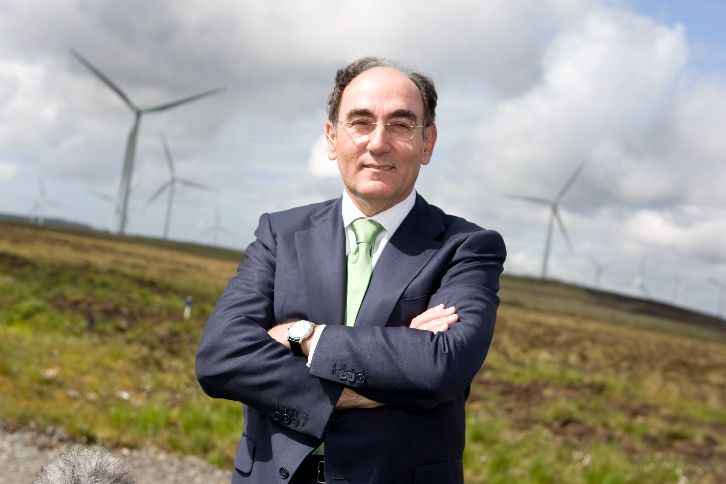
-
19/01/2022Alexia Putellas, Ballon d'Or 2021, signs with Iberdrola as ambassador for equality in sport The Barça captain, who this week also won FIFA's The Best title as best player of the year, says she feels "very happy to be part of Iberdrola's drive towards equality" and believes that "the level of Spanish women's football has grown a lot in recent years", which "gives us all strength to continue improving, and that there are companies like Iberdrola that are making this possible is very positive for everyone". With the incorporation of Putellas, Iberdrola adds a new member to its team of Ambassadors, a programme that aims to empower women, recognise their role in society and make the world aware of how necessary it is for us all to build a society with equal opportunities. The company already has 25 top-level female athletes, with whom it continues to pave the way for women's sport to finally get the recognition it deserves. Alongside Putellas, the team of ambassadors includes sportswomen such as Carolina Marín, Sandra Sánchez, María Vicente, Ona Carbonell and Amanda Sampedro, among many other elite sportswomen. Iberdrola is the first company to make a global commitment to promoting the participation of women in sports and, for more than 6 years, has been a fundamental support for Spanish sportswomen, a commitment that is consolidating and expanding as the number of Federations with which it collaborates - 16 at present, through its alliance with the Universo Mujer programme of the Consejo Superior de Deportes - has increased by 42 %. In addition, the electricity company gives its name to 23 national leagues in different disciplines, reaching more than 300,000 athletes, among which the Primera Iberdrola stands out for having been the spearhead of this objective of visibility, thus consolidating the company's role as a promoter of women's sport. READ MORE








